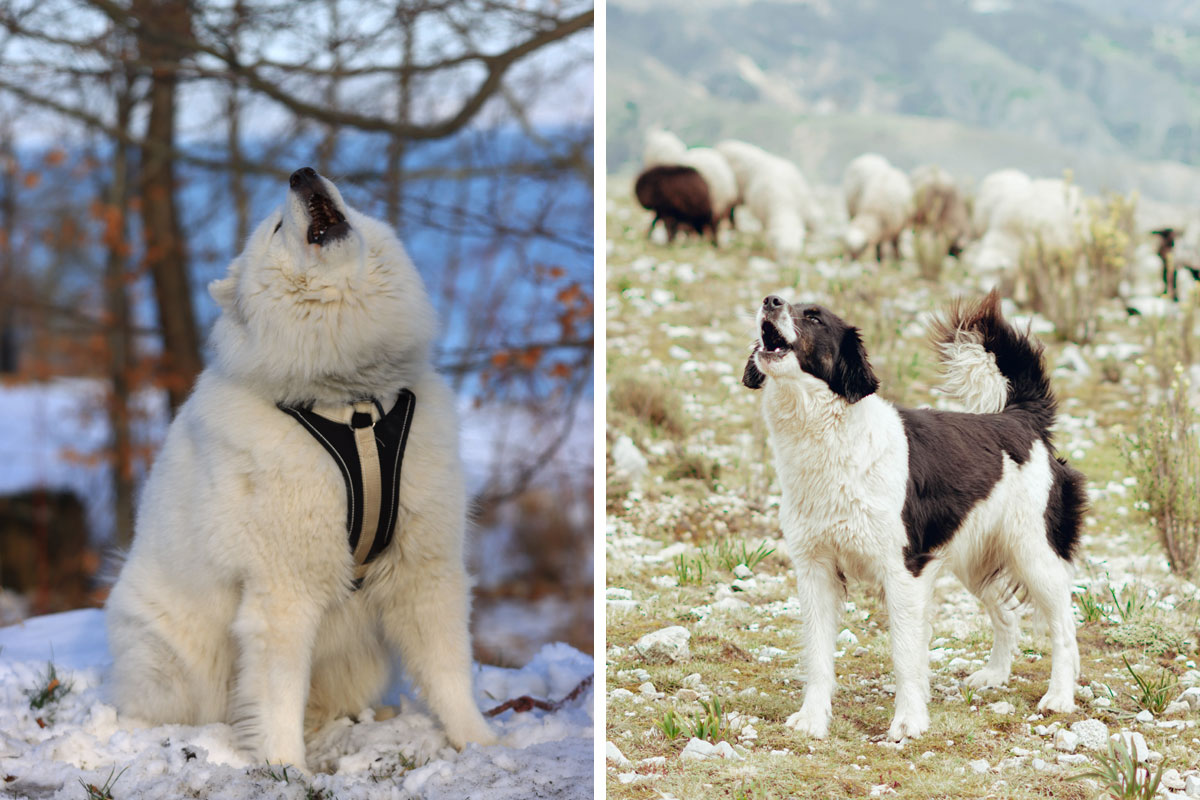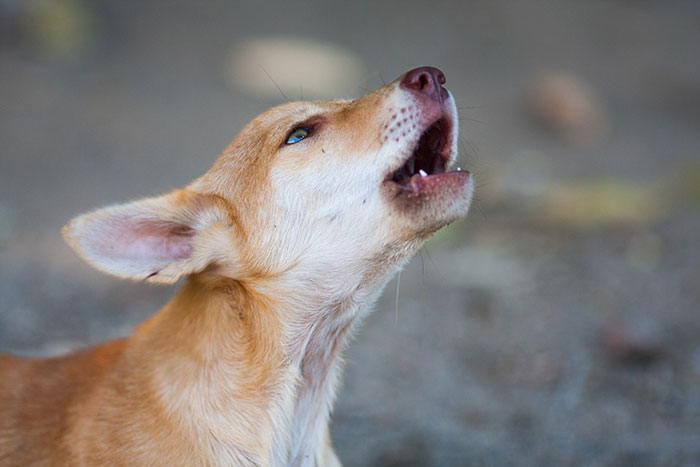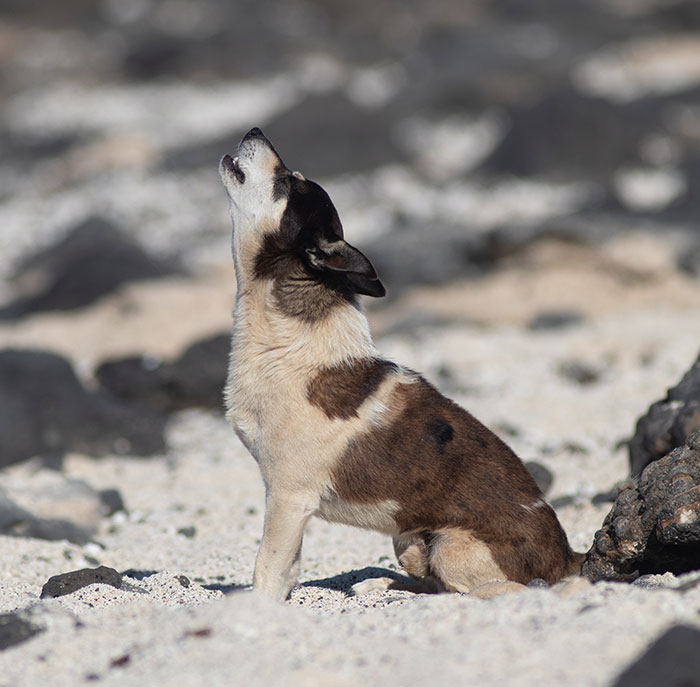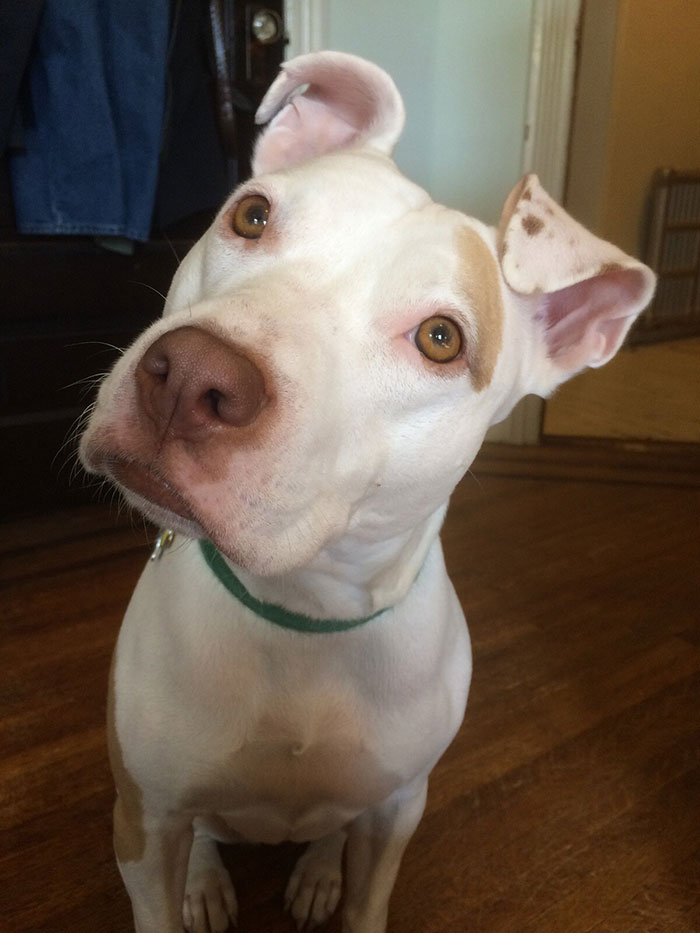Howling is a vocalization behavior exhibited by dogs, which involves producing a prolonged, often mournful sound. It is a part of their natural repertoire of vocalizations.
Dogs howl for a variety of reasons, and the specific triggers and motivations can vary among individual dogs. Dogs often howl in response to human howling for several reasons. Here are the top five explanations for this behavior:
- Dogs howl in response to humans as a form of communication.
- Howling strengthens the social bond between dogs and owners.
- It's tied to dogs' pack instinct with their human family.
- Dogs may imitate human howling out of interest or playfulness.
- Howling can be attention-seeking behavior in dogs.
The information provided herein is for informational purposes only. Please refer to our disclaimer for more details..
Howl as a Way of Communication
Image credit: Žaneta Mišutová
Dogs perceive howling as a form of communication. When you howl, your dog might interpret it as an effort to convey a message or express something, much like they do with other dogs.
In response, they may howl to participate in this form of dialogue, indicating their active involvement. It’s akin to them saying, “I’m here, and I’m part of the conversation!” When you and your dog engage in a howling session, it’s akin to having a conversation in their language. It serves as a distinctive way for dogs and their human companions to establish a deeper connection.
Social Bonding – it is OK to howl with your dog
Image credit: Jordi Clapera Parés
Howling can be like a special secret language between you and your dog. When you both howl together, it’s not just making noise; it’s a way to become closer. Dogs are pack animals, and they consider you part of the pack.
So, when you howl with them, they feel like you’re all part of the same team. It’s a bit like singing a song together; it creates a strong sense of togetherness and connection, making your bond with your furry friend even tighter.
What if the dog licks you while you howl? Well, you might hit the right note, and quite the opposite if the dog freaks out. It is all still a form of social bonding between the owner and the pet.
Pack Instinct in Domesticated Dogs
Dogs are like the ultimate team players, and they see their human family as their pack. When someone in the pack (like a family member) starts howling, it’s like sending out a signal to the dog.
They hear the howling as a way of saying, “We’re all in this together, we’re members of the pack”. It’s a bit like when you cheer for your sports team – howling together strengthens the feeling of belonging and unity, making the dog feel more connected to their human pack members.
Howling is a behavior ordinating from the dog’s long-distance Canine relative wolf. Although wolves’ howling is a form of communication inside the pack or between the packs, this behavior is stuck in domesticated dogs, but for slightly different reasons. Unlike wolves, your dog may howl to announce their location to you and not warn other wild animals or announce its location to other members.
Imitation and Mocking
Image credit: Steven-L-Johnson CC BY 4.0 Deed
Dogs are great at copying sounds they hear, and they often imitate what we do. So, when they hear a human howling, they might think, “That’s a cool sound, I want to try it too!” It is also the case with sirens or loud music. It’s like when you try to mimic a favorite singer.
They might not always understand why we’re howling, but they see it as a fascinating and entertaining activity they want to join in whenever they hear the sound and which adds a playful and bonding element to your relationship with your furry friend. Interestingly enough, humans find these high-pitched sounds entertaining too, especially with pups who often practice howl mixed with barking sounds.
Attention-Seeking
Dogs really like being around us, and they love when we pay attention to them. When they see that howling makes us laugh, talk to them, or play, they might do it more to keep us engaged. So dogs may howl to get your attention and having fun with you, ensuring they feel close and connected to their owners.
It’s important to note that not all dog breeds will howl in response to human howling, and individual dogs may have their unique reasons for doing so. While it’s generally harmless and can be a fun and entertaining activity for both the dog and the owner, it’s crucial to consider the dog’s comfort and not encourage excessive howling.
The dog may be howling for various reasons, they may howl when they hear another dog, warn wild animals to stay away, or howl back at you when you talk but also it can be a sign of separation anxiety.
If you have concerns about your dog’s howling, consult with a veterinarian or a professional dog trainer for guidance on addressing the underlying causes and managing the behavior.
Do dogs howl because it hurts their ears?
No, dogs do not howl because it hurts their ears. In fact, howling in dogs is an instinctual way to vocalize, self-express, and interact.
While loud or high-pitched noises similar to sirens or music can cause distress to dogs and make them starts to howl, the act of howling itself is not hurting his ears. If a dog is howling excessively and showing other signs of distress, it’s essential for the dog owners to investigate the cause, following normal reasons as well as illness or injury
Is howling good for dogs?
Yes, it is perfectly normal behavior for many dogs. All members of Canine family are simply trying to communicate. Dogs descended from wolves and howling is just one of many ancestral instincts like in wild wolves. Like wolves, dogs howl at night when they noticed something irregular, unusual, or potentially threatening or it is likely that your dog may get excited for some particular sound, like sirens of your car.
318views
Share on FacebookMy saluki will howl if I sing at just the right pitch to her. The people in the village I live in call her "le chien qui chante" ("the dog that sings").
My saluki will howl if I sing at just the right pitch to her. The people in the village I live in call her "le chien qui chante" ("the dog that sings").







11
2